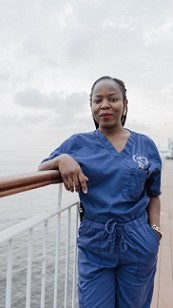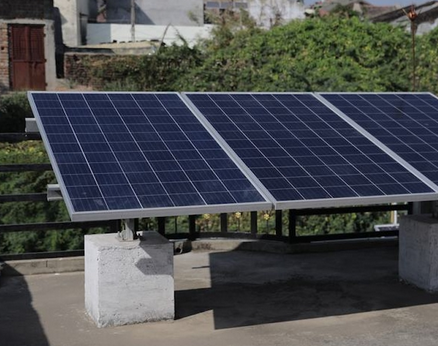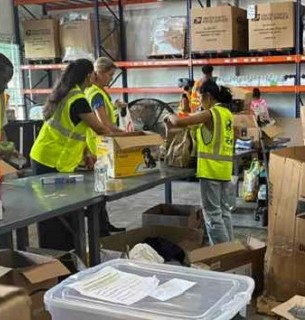New polling shows that while 29% of respondents in the West Midlands are preoccupied with buying and wrapping presents, a further 37% are deeply concerned about affording increased heating costs, and 17% worry about rising food bills.
Budgeting for gifts (14%) and celebrations (11%) forces some to cut back on essentials. Around 1 in 8 (13%) people in the region say the financial burden of the season will have repercussions well into 2025.
Health Equals invites you to walk a mile in someone else’s shoes and discover how many people in the UK without the essential ‘building blocks of health’ are facing poorer health. Currently in Birmingham, life expectancy is 14 years lower than in other parts of the UK, and evidence shows that health inequalities are getting worse.
Today, Health Equals, a campaigning coalition of 27 organisations, including Mind, Global Action Plan, People’s Health Trust, Shelter, Crisis and the Joseph Rowntree Foundation, is launching the online audio experience, A Mile In My Shoes. Originally an immersive experience where visitors could slip on the storyteller’s actual pair of shoes and take a walk while listening to their story; the exhibition has been reimagined for digital audiences and is now available for free online.
Listeners can take a metaphorical walk in the shoes of 21 individuals working across communities to support those facing tough circumstances and issues including housing, education, air pollution and hunger. Their accounts highlight the impact on those who do not have the essential ‘building blocks of health’ in place to support their health and wellbeing: from homes that are warm and safe, to stable jobs, social connections and neighbourhoods with green space and clean air.
Leading to things like chronic stress and illness. With accounts from foodbank managers to family support workers, to deputy head teachers, these stories come to life, as research from Health Equals members highlights how issues stemming from inequalities are amplified across the UK this December due to seasonal pressures.
Recent data from Shelter has warned that the severity of the housing emergency is getting worse this winter, revealing that over half of callers to its emergency helpline are people who are homeless or at risk of homelessness and more than a third of these are families with children. In what for many in the West Midlands is a time preoccupied with buying and wrapping presents (29%), planning seasonal celebrations (14%) or sorting the food shop for entertaining (24%), there are also many people across the region who have deep concerns about being able to afford increased cost of heating (37%) and food bills (17%), along with worrying balancing work pressure with family responsibilities (13%) and a further 12% are concerned about the impact of waste over the period on them and their family.
Whilst some more fortunate stated they would not be impacted by increased costs of heating (11%), food (15%) and items related to seasonal preparations (10%), over 1 in 10 (13%) stated that the financial burden will have knock on effects well into 2025, with the need to budget for gifts (14%) and celebrations (11%) requiring them to cut back on essentials. Paul McDonald, Chief Campaigns Officer, Health Equals said: "December is often portrayed as a time of joy and celebration, but we know that for some people the added pressures in the winter months also negatively impact health.
“Sadly, this reality will not simply go away in the new year. Unequal access to things like quality food, clean air and good housing, are cutting thousands of lives short each year in the UK.
“Which is why we’re campaigning for the Government to tackle health inequalities and make health equal.” Shale Ahmed, Project Director of Aspire and Succeed in Lozells, Birmingham, shoe size 9 said: “I’ve lived the reality of poverty, worrying about basic needs.
“For me, the colder months always represented a greater struggle, increasing my heating bills and feeling isolated from others who were able to able to enjoy the lead up to the New Year. Now, I’m determined to give back to my community, helping others live healthier, happier lives.
“Being part of Mile in My Shoes is an opportunity to show the humanity behind the struggles and to encourage people to step into these stories with an open heart and mind.” To listen to Shale’s story and hear the full collection, you can visit www.healthequals.org.uk/mile-in-my-shoes.
The research was conducted by Opinion Matters among a sample of 3,000 Nationally representative UK respondents (Aged 16+) The data was collected between 29th November and 5th December 2024. Opinion Matters abides by and employs members of the Market Research Society and follows the MRS code of conduct and ESOMAR principles Opinion Matters is also a member of the British Polling Council.











